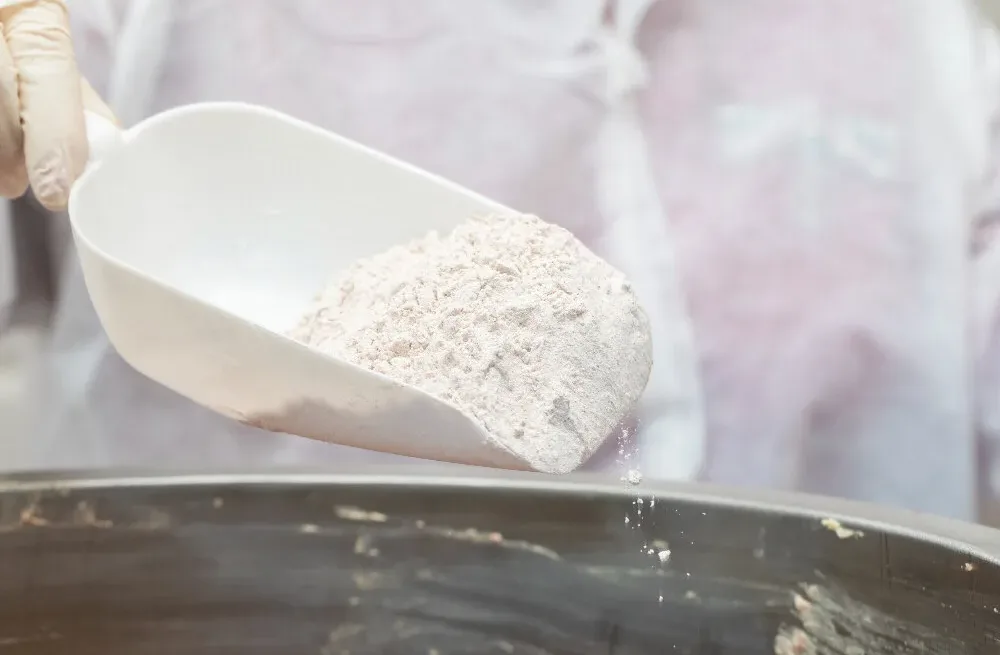Besides coagulants, flocculants are also important ingredients in wastewater treatment. They are used in many industrial sectors to remove waste particles suspended in water. Let’s learn more about flocculants.
What is Flocculant?
A flocculant is a substance that promotes the clumping of particles and is used in wastewater treatment. Flocculants are useful in separating harmful solid particles in water.
Flocculants can be organic or inorganic, and are available in a variety of charge densities, molecular weights, and shapes. Flocculants are used in a wide range of industries, from civil engineering, earth science, and biotechnology companies to breweries and cheese makers.
However, flocculants are primarily used in the wastewater treatment industry for solids removal, water clarification, lime softening, sludge thickening, and solids dehydration.
How Does Flocculant Work?
Depending on the chemical composition and charge of the solution to be separated, flocculants can be used in conjunction with coagulants or alone.
Coagulants (or coagulating agents) destabilize particles suspended in solution, causing them to clump together. The flocculant then combines with the particles to form flocs that float to the surface or sink as sediment.
The specific combination of coagulants and flocculants will vary depending on the type of material to be removed from the wastewater and whether the water treatment facility uses sedimentation or flotation.
The main functions of flocculants are as follows:
- Flocculation and Sedimentation: The primary function of flocculants is to facilitate the flocculation process. They work by forming larger clumps called flocs or accelerating the process so they can settle.
- Contaminant Removal: Flocculants also function to remove contaminants from water or solutions. Contaminants such as silt, soil, organic particles, and heavy metals, often dissolved in water, are often settled with the help of flocculants.
- Improving Filter Performance: In some water treatment systems, flocculants can also help improve filter performance. By helping particles form flocs before they reach the filter, flocculants reduce filter workload and extend filter life.
Read Also: Ensure Water Quality with the Right Water Treatment Chemical
Tips for Choosing the Right Flocculant
Choosing the right flocculant is crucial for the effective operation of a water treatment system. Several key factors need to be considered, such as:
- Water source quality
- System design and operation
- Desired water treatment results
- Chemical compatibility
- Cost savings
- Safety and environmental impacts
In addition, when selecting a flocculant, you need to consider the following factors:
- Suspended particle type: A flocculant type may be effective for specific particle types. Therefore, it is important to identify the composition of the particles to be treated.
- pH: The pH level of the water or wastewater can affect the effectiveness of the flocculant.
- Dosage: The required flocculant dosage will depend on the concentration of suspended particles and the desired level of cleanliness. Laboratory testing should be performed beforehand.
- Compatibility with other chemicals: If other chemicals are used in the treatment process, it is important to choose a flocculant that is compatible with those chemicals to avoid negative impacts.
- Cost: The cost of flocculants is an important consideration, especially for large-scale operations.
- Environmental Impact: Consider the environmental impact of flocculants, including their potential toxicity and biodegradability.
Conclusion
Flocculants play a vital role in water treatment, helping ensure a clean water supply for communities. By helping remove particles that contaminate water, flocculants help protect human health and the environment.
However, the use of flocculants also requires wise management to reduce their negative impacts on the natural environment and human health. If you have questions about wastewater treatment chemicals, or would like to discuss your needs in detail, please contact the Lautan Air Indonesia team today.



